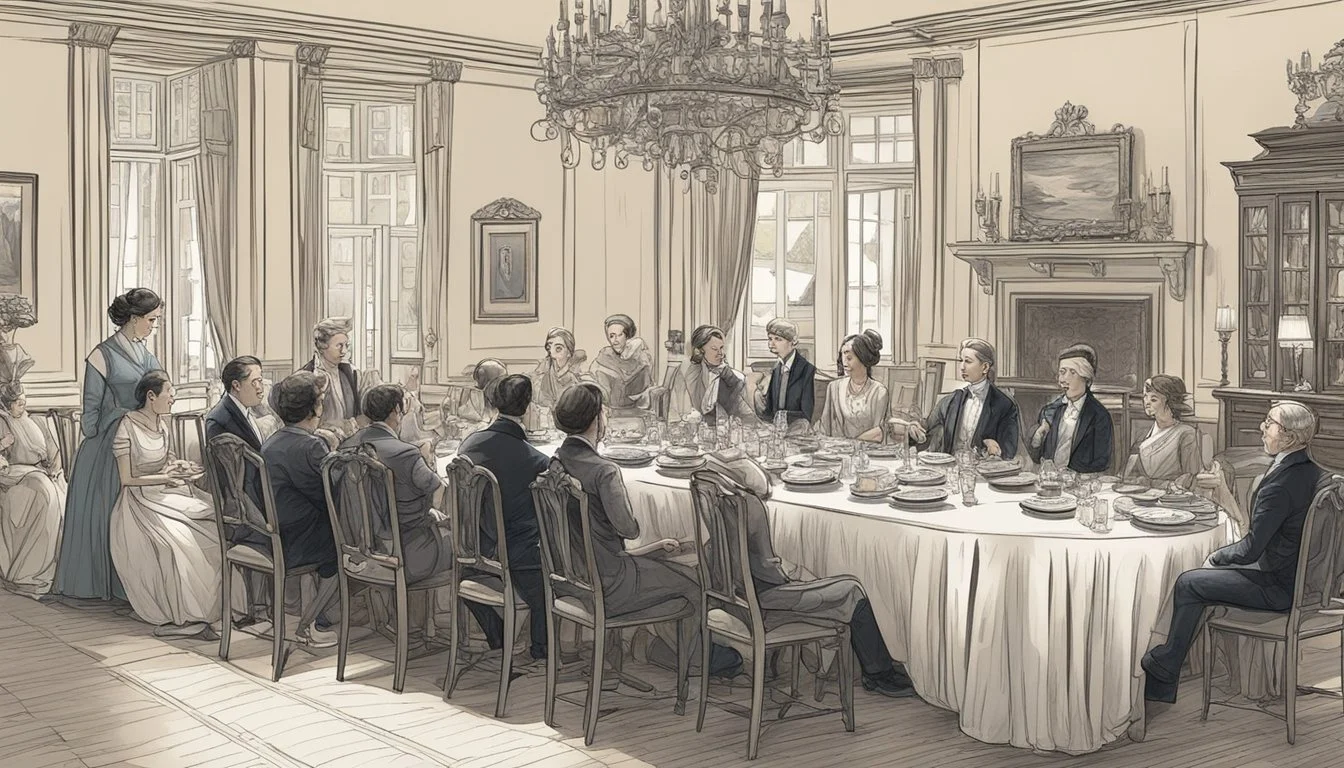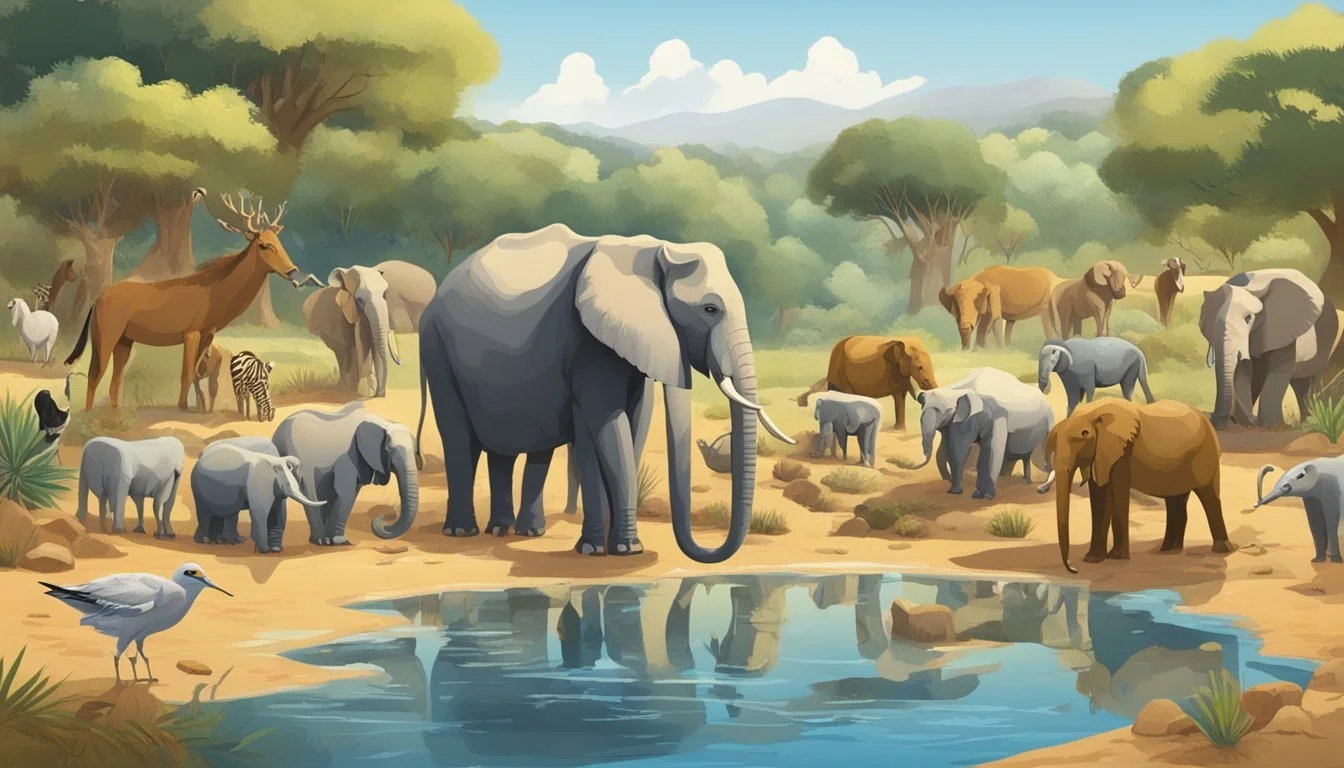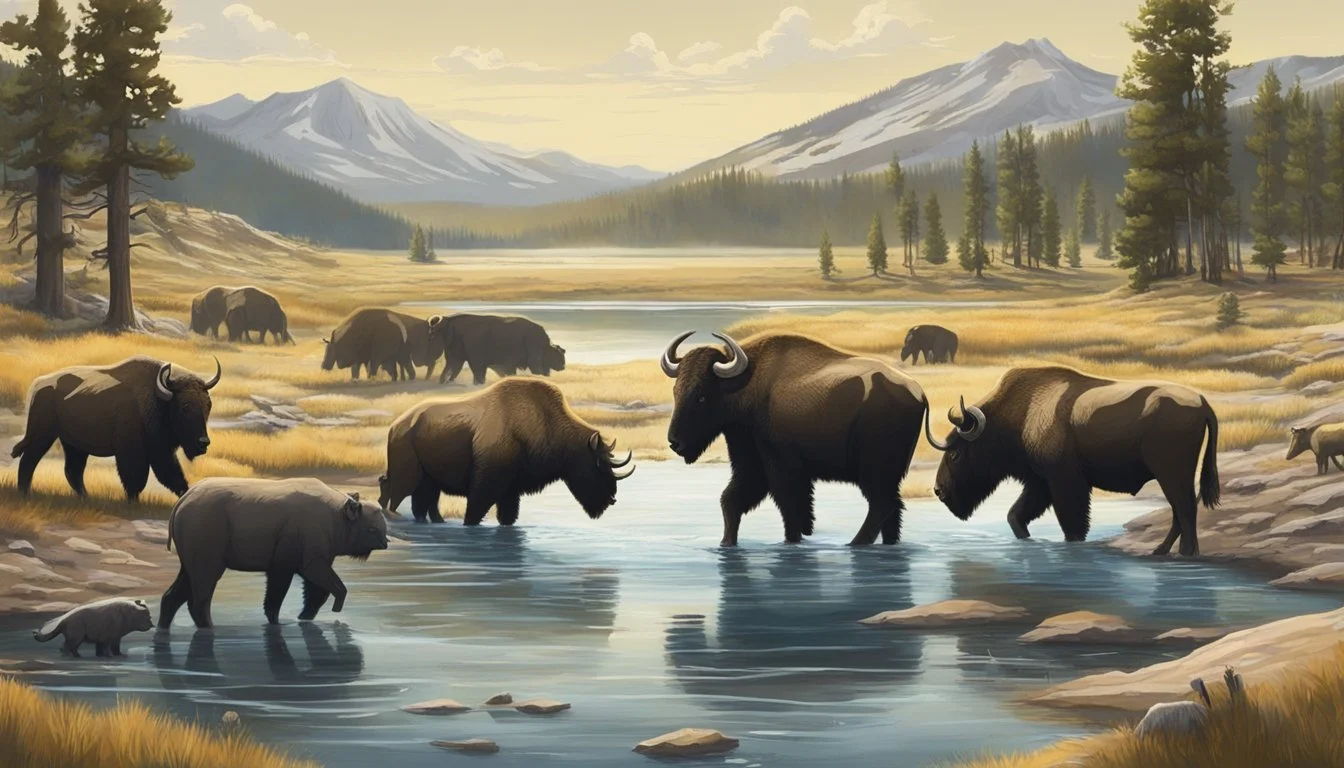6 Yellowstone Storylines That Mirror Current Events
Art Imitating Life in America's Favorite Western Drama
The hit TV series Yellowstone has captivated audiences with its gripping portrayal of the Dutton family's struggles to maintain control of their vast Montana ranch. While the show is a work of fiction, it draws inspiration from real-world issues and events, weaving them into its compelling narrative.
Yellowstone's storylines often mirror current social, political, and environmental challenges facing the American West. From land disputes and Native American rights to conservation efforts and economic pressures, the series tackles complex themes that resonate with viewers. By blending fact and fiction, Yellowstone offers a unique lens through which to examine contemporary issues in a dramatic and engaging format.
1) Power struggles between corporate elites
Yellowstone depicts intense rivalries between wealthy business figures vying for control of Montana's resources. The show mirrors real-world conflicts between powerful corporate interests in the American West.
John Dutton faces off against Market Equities, a company seeking to develop his land. This reflects actual battles between ranchers and developers over prime real estate in scenic areas.
The series showcases backroom deals and political maneuvering reminiscent of real corporate power plays. Characters like Beth Dutton use aggressive business tactics that echo cutthroat corporate strategies employed today.
Land acquisition attempts in Yellowstone parallel real efforts by large corporations to buy up vast tracts in the West. The show highlights how money and influence can shape local economies and landscapes.
By portraying these conflicts, Yellowstone draws attention to ongoing debates about land use, development, and preservation in rural America. It captures the tension between traditional ways of life and modern economic pressures.
2) Land ownership disputes mirroring housing crises
Yellowstone portrays land ownership conflicts that reflect real-world housing crises. The Dutton family's struggle to maintain their vast ranch mirrors the challenges many face in keeping their homes.
In the show, developers and corporations attempt to acquire the Dutton's land for various projects. This echoes the gentrification and urban development issues in many cities today.
The series also highlights the displacement of Native American tribes, drawing parallels to historical and ongoing land rights disputes. These storylines shed light on the complexities of property ownership and cultural heritage.
Yellowstone's depiction of land grabs by wealthy outsiders resonates with concerns about foreign investment in real estate markets. This phenomenon has contributed to housing shortages and affordability issues in many areas.
The show's exploration of zoning laws and eminent domain reflects current debates about land use and property rights. These conflicts underscore the tension between individual landowners and broader community interests.
Through these storylines, Yellowstone offers a dramatized but relevant perspective on the ongoing challenges of land ownership and housing security in modern society.
3) Environmental conservation vs. industrial expansion
Yellowstone's portrayal of the conflict between environmental preservation and industrial development mirrors real-world tensions in the American West. The show depicts struggles over land use, pitting conservationists against those seeking to exploit natural resources.
In the series, the Dutton ranch faces threats from oil companies and developers eager to acquire land for drilling and construction. This reflects actual challenges faced by ranchers and landowners in areas rich in oil, gas, and minerals.
The show also explores the complex relationship between ranching and conservation efforts. Characters grapple with balancing traditional cattle operations against wildlife protection and ecosystem preservation.
Yellowstone's storylines touch on water rights issues, another contentious topic in the Western United States. Disputes over access to rivers and groundwater sources feature prominently, echoing real conflicts between agricultural, industrial, and residential water users.
The series highlights the role of government agencies in managing public lands and enforcing environmental regulations. This mirrors ongoing debates about federal oversight of wilderness areas and national parks in the region.
4) Family dynamics and scandals in public figures
Yellowstone's portrayal of the Dutton family mirrors real-life scandals involving prominent public figures. The show explores power struggles, secret alliances, and betrayals within a high-profile family.
John Dutton's complex relationships with his children echo the public fascination with family dynamics of political dynasties and business empires. The series captures the tension between maintaining a public image and dealing with private family issues.
Beth Dutton's fierce loyalty and Jamie's conflicted identity resonate with real-world family dramas that play out in the media. These storylines reflect how personal choices can impact a family's reputation and legacy.
The show also touches on themes of succession and inheritance, similar to disputes seen in wealthy families. It highlights the challenges of balancing family loyalty with individual ambitions and the pressures of living in the public eye.
Yellowstone's depiction of family scandals and cover-ups draws parallels to real-world situations where powerful families attempt to control narratives and protect their interests. This adds a layer of realism to the fictional Dutton saga.
5) Indigenous rights and cultural reclaiming
Yellowstone's portrayal of Native American struggles resonates with real-world issues. The show depicts conflicts between the fictional Broken Rock Reservation and other parties over land rights and sovereignty.
This storyline reflects ongoing tensions in the American West, where Indigenous communities continue to fight for recognition and respect of their ancestral lands. The series sheds light on the complex history of land ownership and the lasting impacts of past injustices.
Through characters like Thomas Rainwater, Yellowstone explores themes of cultural preservation and identity reclamation. These narratives mirror contemporary efforts by Native American tribes to maintain their traditions and assert their rights in modern society.
The show's success has increased visibility for Indigenous stories in mainstream media. It has sparked conversations about representation and the importance of accurately portraying Native American experiences on screen.
By weaving these elements into its plot, Yellowstone educates viewers about the challenges faced by Indigenous communities today. The series highlights the ongoing nature of these struggles and the resilience of Native American cultures.
6) Law enforcement controversies and accountability
Yellowstone's portrayal of law enforcement reflects real-world debates about police accountability and conduct. The show depicts complex interactions between local sheriffs, tribal police, and federal agencies.
Characters like Sheriff Donnie Haskell grapple with ethical dilemmas and conflicts of interest. These storylines mirror actual challenges faced by rural law enforcement officers balancing community ties with professional duties.
The series also touches on issues of jurisdiction and authority between different agencies. This echoes ongoing discussions about overlapping responsibilities and coordination among various levels of law enforcement.
Yellowstone explores themes of corruption and abuse of power within law enforcement. Characters sometimes bend or break rules, raising questions about oversight and consequences for misconduct.
The show's treatment of these topics resonates with current national conversations about police reform and accountability measures. It highlights the unique challenges of maintaining law and order in remote, sparsely populated areas.
Exploring Socio-Political Themes
Yellowstone delves into complex socio-political issues that mirror real-world concerns. The show portrays power struggles, land rights conflicts, and environmental debates that resonate with current events.
Power Dynamics and Governance
The Dutton family's grip on power in Montana reflects broader political tensions. John Dutton's role as a rancher and influential figure showcases the blurred lines between private interests and public governance.
His conflicts with state officials and corporate entities highlight the challenges of balancing traditional ways of life with modern development pressures. The show depicts backroom deals and political maneuvering that echo real-world lobbying practices.
Tribal sovereignty issues arise as Native American characters assert their rights, mirroring ongoing legal battles over land and resources. These storylines reflect actual debates about self-determination and historical injustices.
Environmental Conservation and Exploitation
Yellowstone tackles the tension between preserving natural landscapes and exploiting resources for economic gain. The Duttons' efforts to protect their ranch from developers parallel real conservation struggles.
The show explores the impact of tourism on protected areas, reflecting debates about sustainable use of national parks. Characters grapple with balancing ranching traditions and wildlife preservation, mirroring actual conflicts between farmers and conservationists.
Corporate attempts to extract resources from pristine areas in the show echo ongoing controversies over drilling and mining in protected lands. These plotlines raise questions about long-term environmental stewardship versus short-term economic benefits.
Family Dynamics and Conflict
The Dutton family's complex relationships and power struggles are central to Yellowstone's drama. Loyalty, betrayal, and the weight of legacy shape interactions between family members as they navigate threats to their ranch and way of life.
Inheritance and Legacy
John Dutton's iron grip on the family ranch creates tension with his children. Each offspring vies for their father's approval and a claim to the Yellowstone legacy. Beth's fierce loyalty contrasts with Jamie's conflicted allegiances, while Kayce struggles to balance family obligations with his own path.
The show explores how wealth and power shape family bonds. Sibling rivalries intensify as Beth and Jamie clash over their father's trust and the ranch's future. Their conflicts often spiral into ruthless schemes and bitter confrontations.
Yellowstone also examines how trauma impacts generations. Past losses and secrets influence present-day family dynamics, driving wedges between members and fueling destructive behaviors. The series reflects real-world family business challenges, where personal relationships intertwine with professional stakes.








